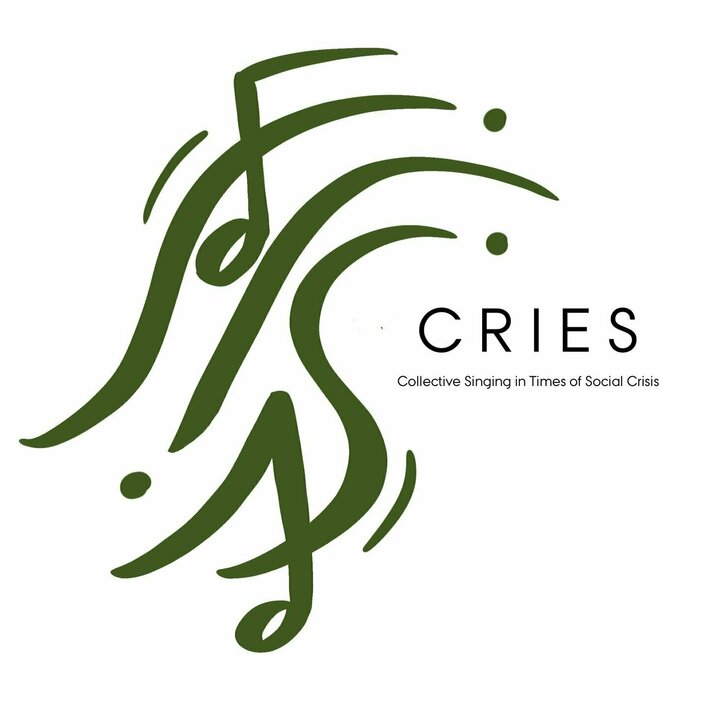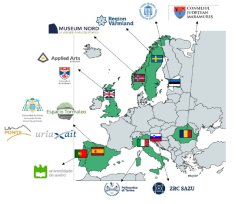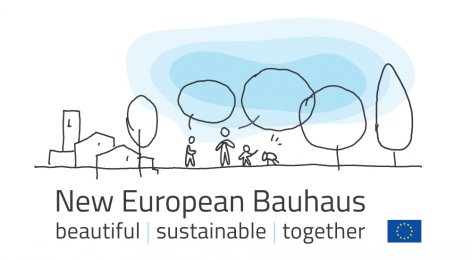Research
Our research projects and teaching correspond significantly to the UN Sustainable Development Goals like, e.g., proactive approach to environmental and climate change challenges, responsible consumption and production, or mutually supportive partnerships. Together with students from all corners of the world, we study and discuss how to employ traditional knowledge and skills for the cause.
Besides furthering international cooperation, the UNESCO Chair aims to locally advance and contribute to knowledge in this globally topical field of research when posing questions on cultural politics and management of heritage in Estonia. Based on studies on the social impact of heritage issues, we draw attention, for example, to the consequences of heritage commoditization or heritage reference in political debates. By combining the academic and the applied approach, we participate in social transformations that depend on research-based guidelines.
Current research agendas:
- intangible cultural heritage and sustainable development
- intangible cultural heritage and social equality: migration, gender, inclusion
- intangible cultural heritage and the challenges of climate change
- intangible cultural heritage and economic relations or activities; the potential and challenges of tourism
- urban space and culture in the context of intangible cultural heritage
We participate in the University of Tartu Committee for the Guidelines on Sustainable Development. We contribute to the creation of an international online bibliography for research references related to the Convention for the Safeguarding of the Intangible Cultural Heritage and its implementation. We are compiling an online publication in Estonian to assist those working in the heritage field. This publication draws upon research carried out in the framework of the project “Cultural heritage as a socio-cultural resource and contested field“. The controversial aspects studied focus on the heritage policies on national level that have glossed over the issues of contrasting rural and urban cultures, of ownership, of inclusion or exclusion of social groups.
Ongoing projects
CRIES - CRIses Established Singing: Investigations into the Inherent Potential of Collective Singing in Times of Social Crises in the Scandinavian and Baltic Regions
The project focuses on the potential of collective singing in times of social crises.
It is jointly funded by the CHANSE program and the HERA network - as part of the Crisis call.
Singing can present a universal response to social crises. Particularly Scandinavia and the Baltic countries are known for traditions of collective singing as a means of cultural resilience, conflict resolution, and inclusivity promotion (e.g. in war time, in labour camps, among deportees, in exile, or during independence movements).
Such singing traditions provide a locus for the negotiation of social cohesion, cultural identity and cultural heritage in the region. However, despite the apparent similarities, no studies have compared those singing practices.
This research team will investigate collective singing practices in Scandinavia and the Baltics focusing on the range of the potential social outcomes of collective singing in times of social crises. Besides elucidating the intricate connection between collective singing and social crises, the project will explore the role of singing in fostering communal cohesion during crises and its potential to instigate sentiments of exclusion and escalate social discord.
In light of Europe's current challenges, including warfare, the lingering COVID-pandemic, and the rise of digital-induced isolation, advancing our understanding of such practices that possess the potential to enhance social trust and cohesion are paramount.

The project “CULTUral heritage in RurAL remote areas for creative tourism and sustainabilITY” (CULTURALITY) is funded by Horizon Europe 2024-2028.
The main objective of the project is to promote cultural tourism in a creative way, taking into account local capacities, resources and specificities. It aims to boost the sustainable development of isolated rural areas, in particular through job creation and the reduction of emigration. To achieve this, the potential of cultural heritage will be explored. Above all, we consider it important to be aware of the needs of the community and to pay attention to the involvement of different social groups such as women, the elderly and young people.
The project is led by the University of Oviedo (Spain). At the University of Tartu, the UNESCO Chair for Applied Research on Intangible Cultural Heritage will be working together with colleagues from Viljandi Culture Academy. A close cooperation is also planned with the Slovenian Academy of Sciences and Arts.
We are already in touch with several community centres in Estonia, where inclusive discussion groups to promote local crafts and tourism as a livelihood are going to be organised.
Homepage of the project.
Project partners:

Funded by the European Horizon Programme, the project "Revitalising Languages and Safeguarding Cultural Diversity (RISE UP)" aims to empower endangered language communities by building connections between relevant actors, identifying good practices and developing methods through a multi-disciplinary approach. Furthermore, RISE UP will foster the self-confidence of these communities, including learners, new speakers, people who have not yet had the chance to learn their heritage language, supporters, and more. Through the collection and analysis of context information and policies for endangered languages in Europe, the creation of a tool set for communities, the connection of relevant actors and the involvement of young people, specifically, RISE UP aims to provide support and empowerment to endangered language communities in Europe.
RISE UP explores and deals with
- Context, reasons and policies for endangered languages within Europe
- Collecting and creating a set of tools to support local communities
- Interconnecting relevant groups of stakeholders and
- Involving and attracting especially young people and other stakeholders, e.g. by using digital tools.
The RISE UP consortium is composed of eight partners from six European countries (Austria, Estonia, Germany, Netherlands, Spain, United Kingdom). With their expertise in disciplines such as linguistics, cultural research, education, art, and game development, they work on the achievement of the project’s objectives through a multi-disciplinary approach.

The partnership of the University of Tartu with the New European Bauhaus is organized through the UNESCO Chair on Applied Studies of Intangible Cultural Heritage. While actively participating in NEB activities itself, the Chair will coordinate and engage other interested UT research groups and "inject" NEB spirit and agenda into planned activities in the span of the project.
Past projects

Photo by Robert Sjöblom
Living heritage holds many possibilities for sustainable and ethical practices that support the livelihoods and well-being of communities. Led by the Finnish Heritage Agency, the project "LIVIND – Creative and living cultural heritage as a resource for the Northern Dimension region" (2021-2024) concentrates on recognizing the practical ways in which living heritage can support sustainable development and how it could be developed and used in sustainable ways. The project is mainly funded by the Ministry for Foreign Affairs of Finland.
The project envisages multidisciplinary webinars, facilitated workshops, expert lectures, and training in the Northern Dimension Cultural Partnership area on international, national, and local levels. The target groups for these events are relevant NGOs, governmental and other institutions, such as museums and archives, bearer communities, groups and individuals, and private sector partners active in the field of living heritage. Good practices will be collected, shared, and developed through the project events. Small-scale pilot projects will be implemented. The project includes research activities led by the UNESCO Chair. A concrete result will be an online platform, a multidisciplinary resource bank of methods, and good practices.
The project PHVKU21920 "Research and development at the UNESCO Chair on Applied Heritage Studies" supports the development of the international and domestic network, launching of social media communication channels, participation in joint research projects and convention of relevant seminars.
The interdisciplinary project IUT34-32 "Cultural heritage as a socio-cultural resource and contested field" was an ethnological study of the process where cultural expressions and practices are designated (intangible) cultural heritage and converted into a socio-cultural resource. We proposed a reflexive critical analysis of heritage construction and community revitalisation when examining cultural heritage interpretations or applications from four perspectives: heritage conceptualisation and policy-making on international, national or local community level; remembrance of difficult pasts and commemorative practices on collective and individual level; cultural heritage as resource in rural entrepreneurship; aspects of exclusion and contestation of the prescriptive heritage framework.
Recent publications (choice):
Kuutma, Kristin; Seljamaa, Elo-Hanna (2025). Intangible Heritage and the Complexities of Inequality in the Politics of Belonging. In: Wulf, Christoph (Ed.). Handbook on Intangible Cultural Practices as Global Strategies for the Future: Twenty Years of the UNESCO Convention on Safeguarding Intangible Cultural Heritage. (179−191). Cham: Springer. (Heritage Studies).
Kuutma, Kristin (2023). Ownership and rights: Sustainable Development ideals with inequalities of recognition and resource management. In: Chiara Bortolotto, Ahmed Skounti (Ed.). Intangible Cultural Heritage and Sustainable Development. Inside a UNESCO Convention London: Routledge. DOI: 10.4324/9781003244158-7.
Kuutma, Kristin; Annist, Aet (2020). Home and heritage out of place: the disjunction of exile. International Journal of Heritage Studies.
Annist, Aet 2020. Introduction: Performance, Power, Exclusion, and Expansion in Anthropological Accounts of Protests. - Conflict and Society, Vol 6 (1), 183-200.
Kuutma, Kristin 2019. Conclusion: The Politics of Scale for Intangible Cultural Heritage - Identification, Ownership, and Representation. - Tuuli Lähdesmäki, Suzie Thomas and Yujie Zhu (Ed). Politics of Scale: New Directions in Critical Heritage Studies. New York-Oxford: Berghahn, 156-170.
Kuutma, Kristin 2019. Inside the UNESCO Apparatus: from Intangible Representations to Tangible Effects. - Natsuko Akagawa, Laurajane Smith (Eds). Intangible Heritage: the practices and politics of safeguarding. Routledge, Taylor&Francis Group, 68-83.
Kuutma, Kristin; Annist, Aet 2020. Home and Heritage out of Place: The Disjunction of Exile. - International Journal of Heritage Studies, Vol 26, 10, 942-954.
Kuutma, Kristin; Vaivade, Anita 2021. Political Imperatives in the Heritage Regime and the Emergent Collaborative Scenarios on the Ground: Case Studies from the Baltics. - Slovenský národopis/Slovak Ethnology, Vol 69, No 4, 519-533.
Plüschke-Altof, Bianka; Annist, Aet 2021. Populism of the Dispossessed: Rethinking the Link between Rural Authenticity and Populism in the Context of Neoliberal Regional Governance. - Pavel Pospech; Eirik Magnus Fuglestad; Elizabete Figueiredo (Eds). Politics and Policies of Rural Authenticity, Routledge, 42-59.
Seljamaa, Elo-Hanna 2021. Diversities claimed, displayed and silenced: Encounters at the new Estonian National Museum. - Ethnologia Europaea, 51 (1), 72−98.


